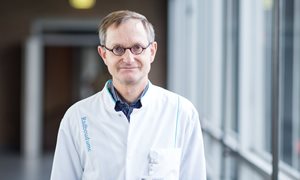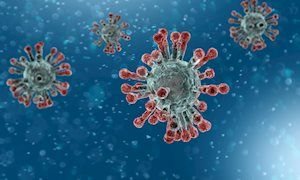
Jeroen Hasselaar of the Radboud University Medical Center will lead a large international research project. With a 5.3 million euro grant from the EU's Horizon program, he and his team want to improve palliative care for cancer patients, together with partners from nine European countries. They are investigating whether a smooth transition of care can be applied from the hospital towards home and community care, so that patients can remain at home for longer, with better quality of life.
Many incurably ill cancer patients in the last phase of life leave the hospital with too little information or with uncertainty about further palliative care treatment. The communication between care providers and thereby also the provided care are often not optimal and this can lead to a reduction in quality of life and new hospitalizations that could have been prevented.
Jeroen Hasselaar, Associate Professor of Palliative Care, aims to improve this route from hospital care to homecare, and is now receiving 5.3 million euros from the European Union. Hasselaar: 'We are going to carry out a clinical study in seven countries, in which we will further develop and apply a palliative care transition program that will improve care in the home situation. In this way, we want to achieve that palliative care improves well-being in cancer. We want to do this together with oncological care providers and care providers at home'.
Reducing readmissions
The basis of the program was developed during a study previously conducted in the Netherlands and will now be further developed and tailored towards other European countries. 'We have to take into account differences between the participating countries. How is healthcare organized? What are local customs, such as referral patterns?’ explains Hasselaar. 'We organize guidance per country and offer training for oncologists and general practitioners. They can identify patients and learn how to better guide the path from hospital to home care.'
The researchers will determine what the effects of the study are and also evaluate the costs. They will look at whether the number of readmissions to the hospital decreases. In addition, the project includes a section on the softer values of palliative care in different countries. Can you talk freely about the end of life, or is it a taboo? How do people deal with values such as hope and dependence, and what impact does that have on palliative care?
More care at home
Hasselaar expects that the focus of palliative care in the future will increasingly be on the patient's living environment and that support from family will become more important. Patients will increasingly be cared for at home, with the hospital acting as a backup or center of expertise (transmural care). This project is in line with this development.
The project is called PAL-CYCLES and is a collaboration with partners in Germany, England, Hungary, Poland, Romania, Portugal and Spain. Also participating are the European Professional Association (EAPC) and the European Cancer Patient Coalition (ECPC). The total amount awarded is 5.3 million euros, of which 1.1 million is earmarked for research at the Radboudumc. The project will run from September 2022 to 2027.
-
Want to know more about these subjects? Click on the buttons below for more news.
More information
Annemarie Eek

wetenschapsvoorlichter
Related news items

NIH grant for follow-up research on tuberculous meningitis
10 February 2022Met subsidie van het Amerikaanse NIH gaat With a grant from the U.S. NIH, Reinout van Crevel will continue to unravel the disease process of tuberculous meningitis.
go to page
Most COVID-19 ICU survivors experience symptoms one year after ICU admission Publication in JAMA
25 January 2022 75% of the COVID-19 survivors who were treated in the Intensive Care Unit (ICU) experience physical, mental and/or cognitive problems one-year post ICU. This shows the large-scale MONITOR-IC study led by Radboudumc. go to page
1.4 million euro to reduce hospital admissions due to medication
7 January 2022 A team of sixteen Dutch hospitals received a grant of 1.4 million euros from ZonMw. They will investigate whether they can reduce medication related hospital readmissions. go to page
Telemonitoring in chronic heart failure not unqualifiedly positive often additional demand for care without decreasing number of admissions
19 October 2021 To contain rising healthcare costs, digitization of healthcare is often seen as a solution. Researchers at the Radboudumc examined the use of telemonitoring in chronic heart failure. Does this reduce hospital admissions and visits to the emergency room? go to page

